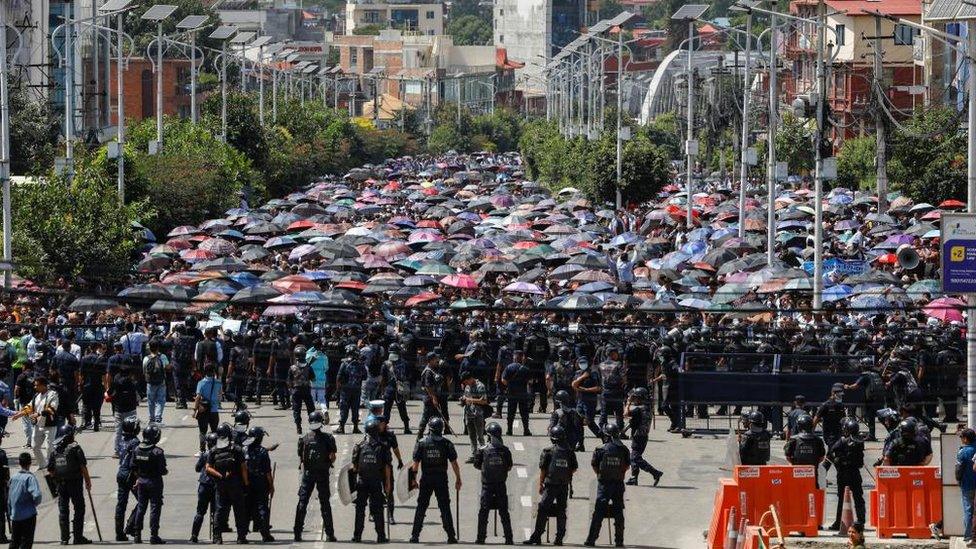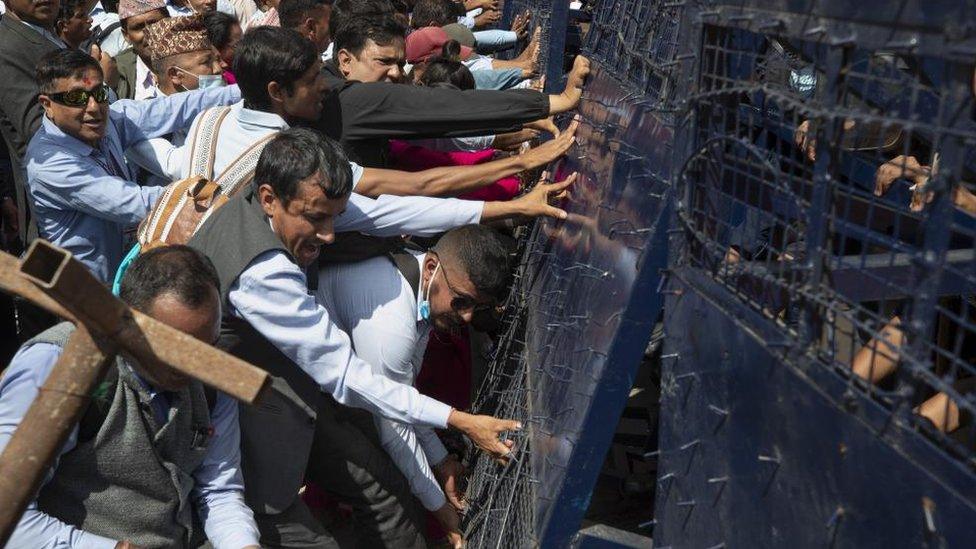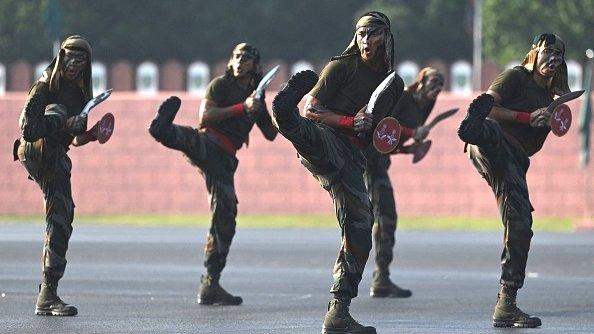Nepal: Teachers strike over education reform shuts down schools
- Published

The protests have disrupted classes across 30,000 public schools in Kathmandu
A massive teachers' strike in Nepal has entered its third day, disrupting classes for millions of students across all public schools.
About 110,000 teachers are protesting an education reform bill in parliament.
They are against proposals to give local governments oversight of schools and a ban on teachers joining groups with political affiliations.
On Thursday, scores of protesters marched towards the parliament building in the capital, Kathmandu.
Anti-riot police armed with sticks pushed pack as the protesters tried to push past a steel barricade.
Students and parents are calling for an end to the unrest so that classes can resume.
"How can my own teachers play against my future?" said 16-year-old Simran Bhatta Acharya, who is preparing for national examinations.
Simran's mother Sabitri Acharya said she has taken several days off work to look after her daughter.
"How long can I do that? Teachers should fight for their rights without taking away the children's right to education," she said.
The teachers are protesting a provision the bill that bars them from joining organisations with political affiliations.
Nepali teachers were notably involved in the country's fight for democracy. The country held its first parliamentary elections in 1959 and political parties have long been interested in recruiting teachers as activists.
But some education experts argue that teachers' involvement in politics undermine education quality and have argued for party politics to be banned in these institutions.
The teachers also protest plans to give local government oversight of schools, which they say should be exclusive to the federal government.
A constitutional change passed in 2015 shifted the governance of some public institutions, such as schools and hospitals, to local authorities. This followed concerns over the centralisation of powers and resources in Kathmandu.
Eight years on, some teachers are complaining that local officials are not properly equipped to run schools and have caused the quality of education to fall.
Many Nepalis however are supportive of the bill, which they believe ensures greater accountability among the teachers.

Protesters trying to break through barricades guarded by police officers
The teachers have put up various demands to the government, which include letting decisions on promotion and transfer be handled at the provincial level, instead of by local municipalities.
They also asked for higher wages, a council to oversee teachers' training, and opportunities for teachers hired on a contract-basis to take up permanent appointments.
Kamala Tuladhar, president of the Nepal Teachers' Association, claims the government did not fulfil its "agreement" with teachers earlier to address their concerns.
"But many things were not addressed, so we were forced to protest," she said.
Nepal's acting Prime Minister Purna Bahadur, however, said the teachers started protesting "without informing the government about their demands".
Government leaders met the protesting teachers on Thursday and Friday to discuss their concerns. Officials said the talks were "positive" but ended inconclusively.
The teachers have threatened to continue demonstrating if their demands are not met.
Kamal Giri, the press adviser of Narayankaji Shrestha (deputy Prime minister) told the BBC that the acting PM has "assured that the government has no intention of undermining the teachers' morale".
- Published24 August 2023

- Published8 June 2023

- Published27 August 2023
